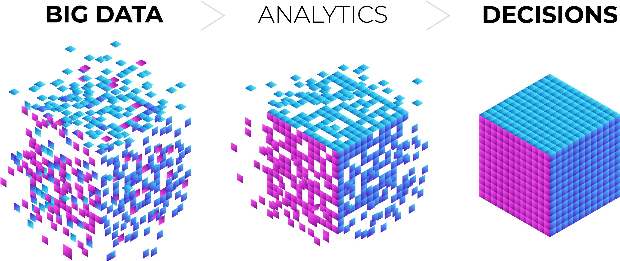The role of big data and business intelligence

The manufacturing sector is lagging behind many others when it comes to the adoption of BI (business intelligence) systems. At the same time, manufacturers face a constant and growing pressure to innovate quickly in times of increasing economic uncertainty and an ever-greater emphasis on the importance of sustainability.
Leveraging big data has become a business imperative, not only in manufacturing, but every other sector as well. However, as the amount of digitisation continues to proliferate at a rapid pace, the challenge lies in translating the raw data into real-world use cases and actionable insights.
Seizing new market opportunities with innovative tech
The digital transformation of the manufacturing sector is dependent on the adoption of systems that generate valuable data, and that data is the fuel for BI systems. For example, IoT (Internet of Things) devices can collect data directly from the shop floor, without manufacturers having to rely solely on manual reports. Drones equipped with cameras and other sensors can record vast amounts of information across large areas in a fraction of the time that people can. These are just a couple of the examples of how innovative technology is feeding the big-data pipeline in modern manufacturing firms.

Building a scalable and extensible data foundation
The primary difficulty of leveraging big data for analytics is simply down to the fact there is so much of it. The amount of data being generated continues to double every two years, to the point data sets are now far too large for human comprehension. This is why modern BI tools have become heavily reliant on artificial intelligence and machine learning to translate the data into actionable insights.
Most manufacturers are still heavily reliant on their ERP (enterprise resource planning) tools, but while these systems are important, they are generally not geared up for big data analytics. In fact, ERP is itself a valuable data source, but it is one among many others, including RPA (robotic process automation), CRM (customer relationship management), and IoT systems.
To avoid missing or inaccurate insights due to incomplete data sets, data must be drawn from all of the sources that generate it. This requires a scalable and extensible framework that can be easily adapted to the constantly evolving needs of the organisation. Fortunately, the rise of open APIs (application programming interfaces) and industry-wide standards and protocols is making this easier, but many manufacturers still have a long way to go before fully realising their advantages.
Gaining insights from new and existing data sources
Data collection is just the first part of the process. Big data is the fuel that enters the top of the BI pipeline, after which is goes through extensive analysis where data is curated, cleaned, and compared, before being released in the form of valuable information – or answers to the most pressing business questions, in other words.
While data, regardless of its form or quantity, is a commodity, business intelligence refers to the process of turning it into insights. These insights can enhance decision-making across the complete range of manufacturing operations from the predictive maintenance of machinery to insights for sales, marketing, customer support, and supply chain management departments. Together, this data-driven decision-making can reduce waste, improve products, and reduce cycle times.
Final words
Innovation does not happen in a bubble. In order to minimise risk and drive sustainable growth, the course of innovation must be driven by facts, rather than emotions and guesswork. This is enormously important in the manufacturing sector, where organisations often serve multiple markets and manage complex supply chains. Modern business intelligence systems, fuelled by the proliferation of big data, are critical for making that happen.
MPDV
We Create Smart Factories
MPDV is the market leader for IT solutions in production. We offer products, solutions and services based on a broad expertise. MPDV supports companies from all industries and of all sizes on their way to the Smart Factory.
“We” stands for around 500 employees of MPDV. After all, it is the people who define a company. Every day, MPDV‘s teams develop smart manufacturing solutions. They have made MPDV what we are today with their passion for high-quality products, their know-ledge and their team spirit: the market leader for IT solutions in manufacturing with more than 40 years of experience in the production environment.
“Create” stands for what MPDV is doing. We drive digitization in manufacturing and make companies competitive. We always have the finger on the pulse and know the needs of our customers very well. We operate competen-ce centers, are in constant exchange with our users and further develop our solutions ac-cording to requirements. To do so, we focus on the essentials and thus stand out from thecrowd.
„Smart Factories“ is the vision of a self-re-gulating factory of the future where machines and logistics systems organize themselves as independently as possible. MPDV supports companies in turning this vision into reality. We make a key contribution with our products to ensure that factories evolve into true Smart Factories and stay at the cutting edge of tech-nology. The focus continues to be on people as an integral part of creating value.
The MPDV Group is made up of the following companies:
• MPDV Mikrolab GmbH and MPDV subsi-diaries in China, Malaysia, Singapore, Swit-zerland and the USA.
• AIMES GmbH
• FELTEN Group
• Perfect Production GmbH
